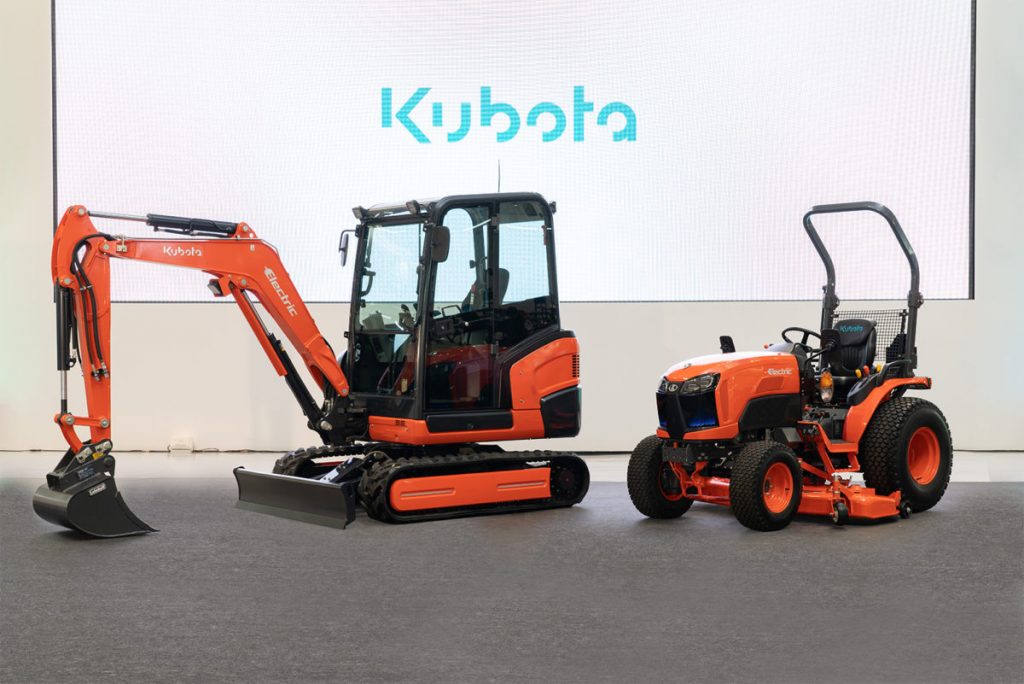
We often think about future urban scenes when we hear words like electric vehicles and robots, though the popularization of these new technology is relatively restricted in densely populated metropolitan areas. However, it may be a different story if they are applied on extensive farmland.
According to the research report of IDTech, the global mechanical electrification market for construction, agriculture, and mining is expected to achieve a scale of US$149 billion in 2030. As automotive manufacturers continue to break through in the relevant technology of battery and electric vehicles, agricultural electric vehicles are also constantly improving in performance, and farmland possesses two electrification advantages unattainable by cities.
First is the convenience in charging, as installing one to two charging stations next to the farmhouse of inside the garage in the relatively vast farmland space is no problem at all, especially with the gradual popularization of existing solar and wind power generation devices in agricultural areas, where the diversified power sources of electric vehicles and machine tools not only reduce cost, but also help with balancing the power.
Second is the differences in the need of performance. Electric vehicles in cities require higher instantaneous power output due to traffic demand, as well as high power in order to respond to various daily variations, thus the huge battery unit installed for electric vehicles not only result in heavier body weight, but also higher cost. In contrast, agricultural electric vehicles are straightforward in objective, and do not require enormous horse power, with a lower demand in driving distance that will naturally reduce the relevant cost.
Despite not having the need of instantaneous huge horse power, agricultural machines do require substantial torsion, and the current primary manufacturers, including Kubota from Japan and John Deere from the US, have all produced a strong electric motor system, though the main bottleneck right now lies on the battery technology.

▲Kubota showcasing its electric agricultural machinery that are under development, with the Compact Tractor on the right. (Source: Kubota)
The Compact Tractor that is under development by Kubota will commence field tests in Paris at the end of the year, as announced by the company recently, and will adopt lithium ion battery instead of lead-acid battery in order to achieve the equal power as diesel engines, where an hour of charging will provide the power required for 1/2 day of operation, according to the coverage of Nikkei.
Electrification provides apparent advantages, such as zero emission and low noise, though for commercial machinery, the key remains to be the cost of maintenance. Although electrified machinery will unavoidably cost more than diesel machines, the lower cost in maintenance for the former will become the decisive factor in the popularization of electric agricultural machinery.
In addition to electrification, various major manufacturers have noticed the market opportunity from the lack of manpower in agriculture, and are currently researching and developing artificial intelligence and drone technology, including automatic grass mowers and agricultural App. The multiple agricultural Apps of John Deere are able to assist farmers in planning for farming areas, recommend the optimal time for pesticide and fertilizer application, and remind the time of grass mowing, where the significant farming information collected through these Apps will help the company in developing automated farming machinery.

▲Pesticide application through drones is a technology solution in future large-scale agriculture. (Source: John Deere)
Apart from the pesticide application drone presented by John Deere, Kubota also showcased its unmanned farming machine NW8SA, which completes rice transplanting and fertilizer application through the 8 ultrasonic sonar device detection, and saves substantial amount of manpower. The machine will begin delivery in October this year, and is priced at JPY$6.25 million (roughly TW$1.71 million).
Sporadic development can also be seen in Taiwan, including electric agricultural transportation vehicles and electric grass mowers, and we can look forward to the day when the odor of diesel gradually disappear from farmland.
(Cover photo: concept tractor showcased by Kubota, source: Kubota)







